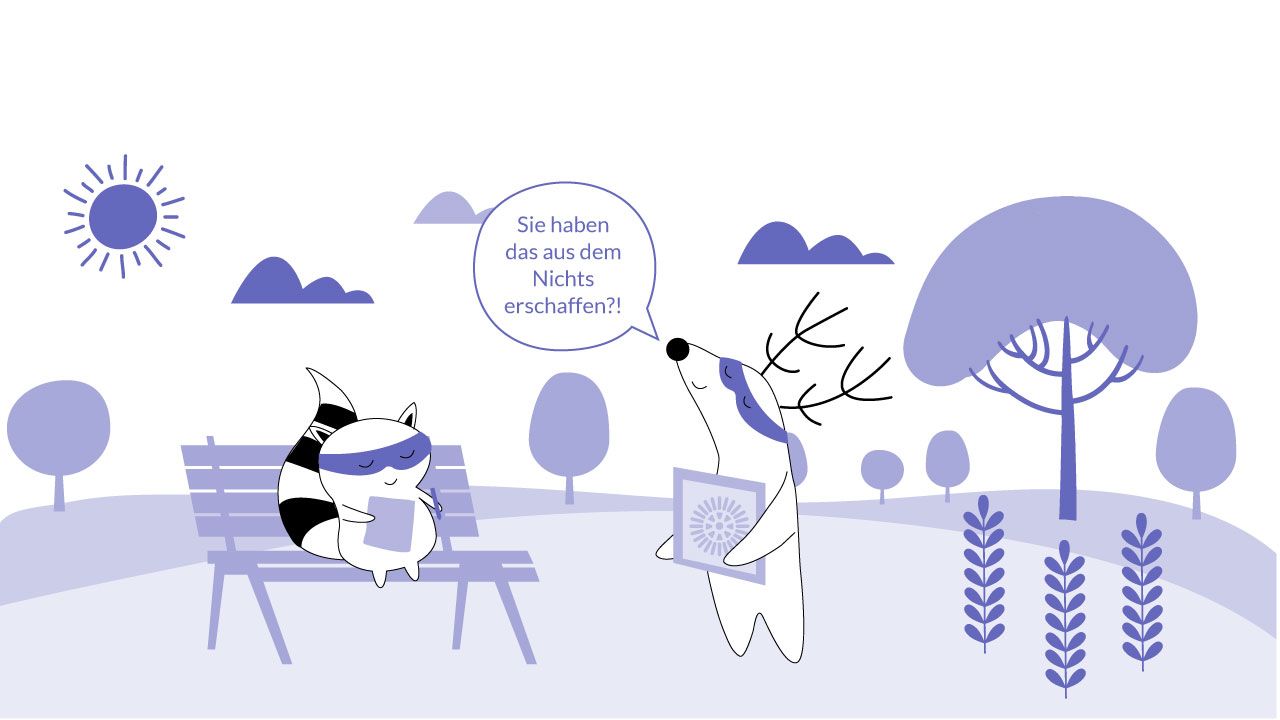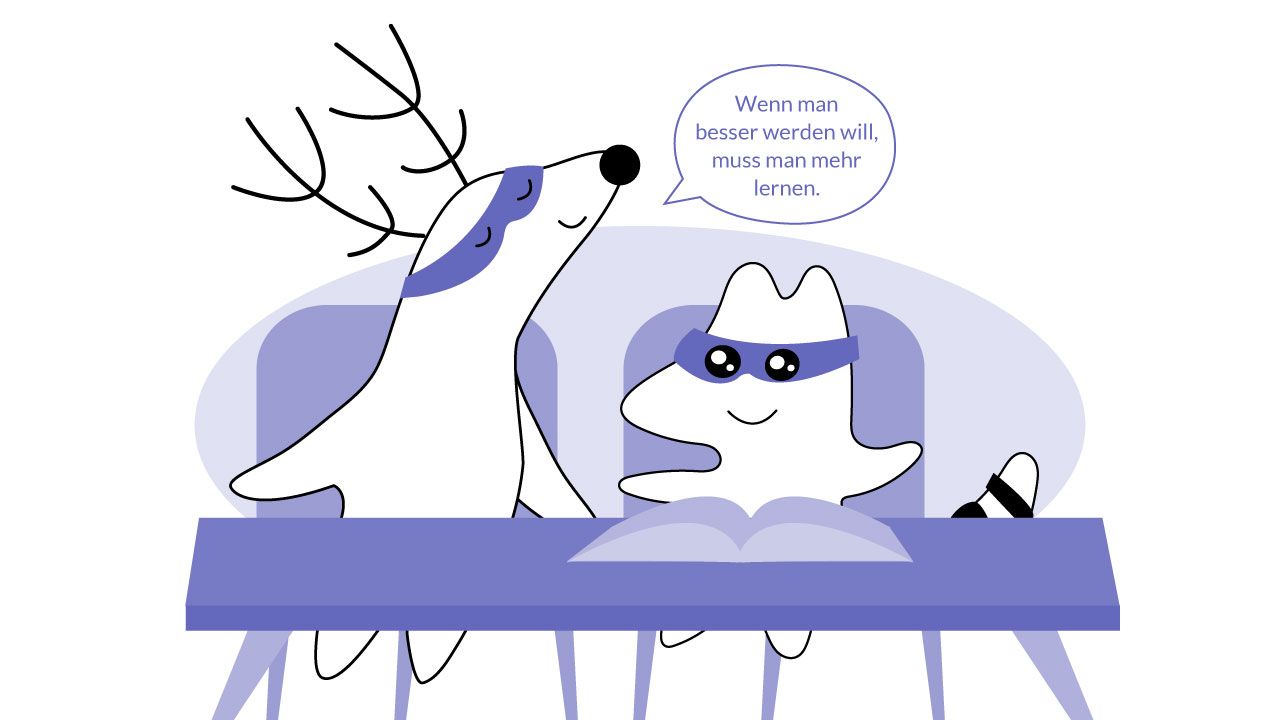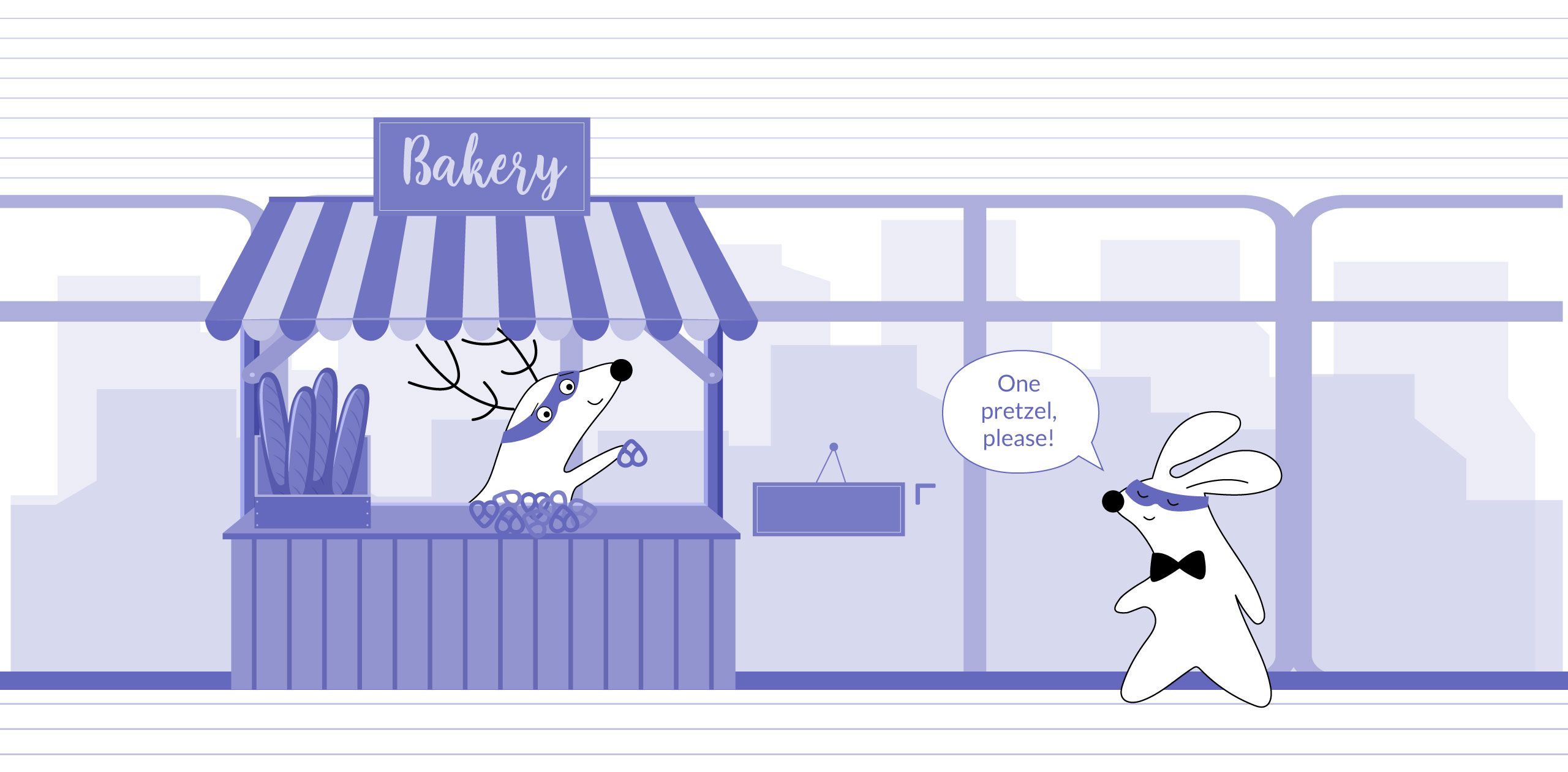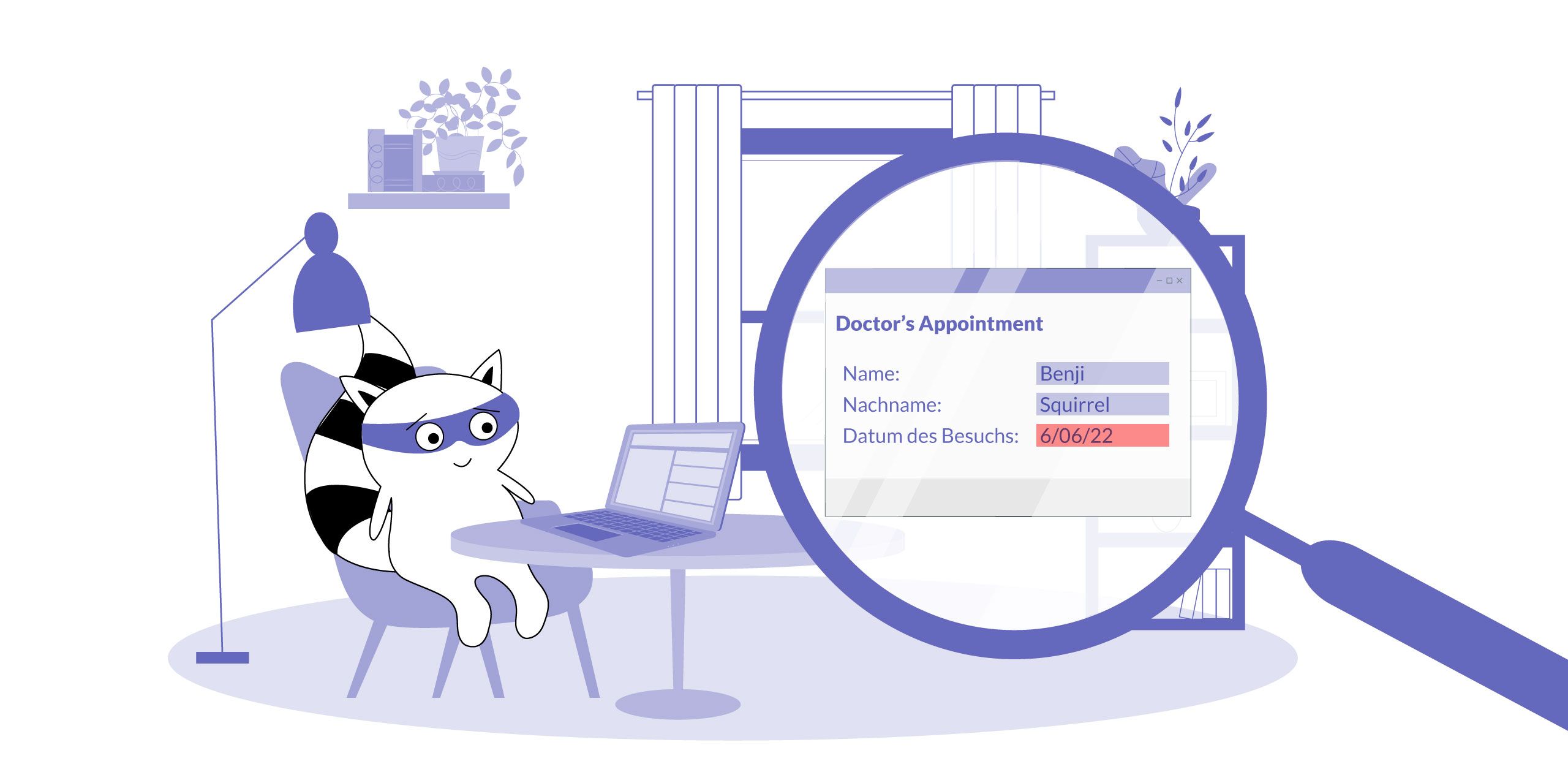
One of the most frustrating aspects of learning German is that it has so many different kinds of words that don’t exist in other languages. This often leaves learners wondering which word to use and when, as well as how to pronounce them correctly.
One group of such confusing words are German indefinite pronouns. This small part of German grammar can be difficult to learn at first as German indefinite pronouns don’t often correspond to similar English words, but it is nevertheless an essential part of the German language.
To make your life easier, in this blog post, we will take a look at the 7 most important German indefinite pronouns, and explain how they are used. Read on.
Learn German with Langster
Indefinitpronomen – What Are Those?
Indefinite pronouns are words that represent unspecified or unknown things. They can be used to refer to people, places, things, or concepts. In English, we have a few words that serve a similar function, such as something, anything, nothing, someone, and anybody.
There are many indefinite pronouns in German, but some of the most common ones are: etwas (something), nichts (nothing), jemand and niemand (someone and no one), kein (nobody), ein (one), and man (one/you/they).
Some of these pronouns are declined, which means they should agree with the noun they are representing in number and gender – for example, jemand and niemand. Others only have one form that doesn’t change – for instance, etwas. Now, let’s look at them in more detail.
Etwas (Something)
Etwas is one of the most commonly used indefinite pronouns in German. It can be used to refer to any unspecified thing, whether it be a person, place, thing, or concept. In German, you use etwas to say “something.”
Etwas is always singular, and it is always neuter – it doesn’t change its form according to the noun it defines.
German
English
Sollen wir etwas essen?
Shall we eat something?

Etwas – Usage
In most cases, etwas is used without an article (i.e. it doesn’t have der, die, or das before it), as in:
German
English
Ich habe etwas vergessen.
I have forgotten something.
However, it does take an article when used as a noun, such as in:
German
English
Das gewisse Etwas.
That certain something.
The indefinite pronoun “etwas” is often used with other words to create specific phrases. Here are some common examples:
German
English
Etwas Tolles.
Something great.
Etwas Schreckliches.
Something terrible.
Etwas Gutes.
Something good / a good thing.
Etwas Böses.
Something bad.
Nichts (Nothing)
Nichts in German means “nothing”, similar to English. However, unlike the English word where “nothing” is considered uncountable, “nichts” is always singular. It is also always neuter.
German
English
Es war nichts mehr zu machen.
There was nothing more that could be done.
Nichts as an Indefinite Pronoun and as a Noun
Like etwas, nichts is most commonly used without a definite article, as in:
German
English
Ich habe nichts gesehen.
I haven’t seen anything.
Was hast du denn? – Nichts…
What's up with you? - Nothing…
Nevertheless, it can be used not only as an indefinite pronoun but also as a neuter noun, meaning “nothingness,” “emptiness,” or “void.” In that case, we should use it with an article:
German
English
Etw. aus dem Nichts erschaffen.
To create something out of nothing.

Jemand and Niemand (Somebody and No One)
Jemand and niemand are two of the most common German indefinite pronouns. These indefinite pronouns respectively mean "someone" or “anyone” and "no one", and are declined in a similar way:
| Nominative | jemand/niemand |
| Accusative | jemanden/niemanden |
| Genitive | jemand(e)s/niemand(e)s |
| Dative | jemandem/niemandem |
| Nominative | jemand/niemand |
| Accusative | jemanden/niemanden |
| Genitive | jemand(e)s/niemand(e)s |
| Dative | jemandem/niemandem |
While these proper endings are added in written German, they are often omitted in everyday speech. Here are some examples of how these two indefinite pronouns are used:
German
English
Jemand hat mir erzählt, Avocados seien sehr gesund.
Someone told me avocados are very healthy.
Jemand hat mein Auto gestohlen.
Someone has stolen my car.
Jemand hat es genommen.
Someone took it.
Ich habe mein Buch an jemanden weitergegeben.
I gave my book to someone.
Sie hat niemanden gesehen.
She didn’t see anyone.
Notice: the indefinite pronouns jemand and niemand refer to just one unknown person – for a group of unknown people, we use the indefinite pronoun man.
Man (One, You, They)
German possessive pronouns do not always directly translate to English pronouns. One of the words that differ strongly from others is man. Depending on the context, it can mean “one,” “you,” or “they.”
Generally speaking, we use this possessive pronoun when we aren't talking about one specific person, rather an infinite number of people, a community, one unspecified person, or just anyone.
For example:
German
English
Wenn man besser werden will, muss man mehr lernen.
If you want to get better, you have to learn more.

German
English
Man muss weniger schnell essen.
One has to eat less quickly.
Man – A Trick for Usage
Germans love to use that word where in English, we would say “you.” This comes especially handy in cases when they want to criticize someone politely, without pointing fingers:
German
English
Man muss vorsichtiger fahren.
You need to drive more carefully.
Das tut man nicht.
That is not done / You didn’t do it.
Note, however, that the indefinite (impersonal) pronoun man is not the same as the German word der Mann, meaning “a man.”
Man – Declination
The word man is always referring to one imaginative generalized person, which is why it stands in the singular form and doesn’t change.
However, any verb connected to “man” is always declined like the third person singular er/sie/es.
German
English
Man hat mir gesagt…
Somebody told me / I was told.
Keiner (Nobody, Not Any, No, None)
Keiner is the German indefinite pronoun that can be translated as "nobody, “not any”, “none,” or “no.” It refers to people or objects and is always used in a negative form.
The indefinite pronoun keiner is declined in a pretty complex way, yet similarly to the article kein (except in the nominative masculine and nominative and accusative neuter forms):
| Case | Masculine Singular | Feminine Singular | Neuter Singular | All Genders Plural |
|---|---|---|---|---|
| Nominative | keiner | keine | keins | keine |
| Accusative | keinen | keine | keins | keine |
| Genitive | keines | keiner | keines | keiner |
| Dative | keinem | keiner | keinem | keinen |
| Case | Masculine Singular | Feminine Singular | Neuter Singular | All Genders Plural |
|---|---|---|---|---|
| Nominative | keiner | keine | keins | keine |
| Accusative | keinen | keine | keins | keine |
| Genitive | keines | keiner | keines | keiner |
| Dative | keinem | keiner | keinem | keinen |
This pronoun must agree with the noun, so the ending changes depending on the case and number of the noun it is replacing.
Here are some examples of this:
German
English
Er wollte ein Stück Schokolade, aber ich hatte keine.
He wanted a piece of chocolate, but I didn't have any.
Keiner weiß Bescheid über ihn.
Nobody knows about him.
Ich habe niemanden gesehen.
I saw no one.
Er hat keinen Freund.
He doesn't have any friends.
Ein (One)
Ein is the German indefinite pronoun that can be translated as "one" and is used to replace a noun that is singular and not specific. But be careful: don’t confuse it with the indefinite article "ein" that translates to "a/an."
It is used only in the singular form, and declined in a similar way to keiner:
| Case | Masculine Singular | Feminine Singular | Neuter Singular |
|---|---|---|---|
| Nominative | einer | eine | ein(e)s |
| Accusative | einen | eine | ein(e)s |
| Genitive | eines | einer | eines |
| Dative | einem | einer | einem |
| Case | Masculine Singular | Feminine Singular | Neuter Singular |
|---|---|---|---|
| Nominative | einer | eine | ein(e)s |
| Accusative | einen | eine | ein(e)s |
| Genitive | eines | einer | eines |
| Dative | einem | einer | einem |
Here are some examples with this indefinite pronoun:
German
English
Ich brauche nur eine / Ich brauche nur einen / Ich brauche nur eins.
I only need one.
Sie trifft sich mit einem ihrer alten Studienfreunde.
She’s meeting one of her old friends from university.
Sie brauchen ein Buch? Ich habe eins.
You need a book? I have one.

Final Notes
Learning German can appear to be difficult, especially when it comes to German grammar, but keep practicing and you will improve for sure.
The more you use the German language, the easier it will become to understand, speak, and maybe even think in German. We hope that our blog can give you a little guidance on how to improve your skills – and our app can help you practice more.









